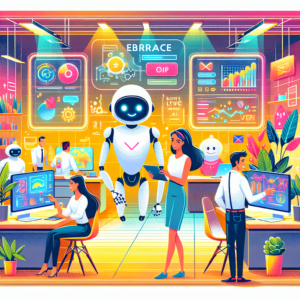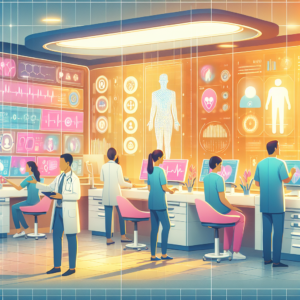Based on the research, here’s a comprehensive, SEO-optimized blog post:
The AI Revolution: Transforming Job Markets and Redefining Work in the Digital Age
Introduction: The New Workplace Frontier
Imagine a world where your work colleague might be an artificial intelligence, and your job description could change overnight. Welcome to the AI-powered workplace of 2024 – a landscape of unprecedented transformation, opportunities, and challenges.
Artificial Intelligence (AI) is no longer a futuristic concept; it’s a present-day reality reshaping how we work, learn, and grow professionally. From automation to creating entirely new job roles, AI is rewriting the rules of employment across every industry.
The Changing Face of Work: AI’s Impact on Job Markets
Automation: The Double-Edged Sword
Recent research reveals some eye-opening statistics about AI’s impact on employment:
- 14% of workers have already been displaced by AI technologies
- 24% of workers are concerned about AI potentially making their job obsolete
- 19% of workers are employed in jobs most exposed to AI automation
However, it’s not all doom and gloom. AI is simultaneously creating new opportunities and transforming existing roles.
The Rise of New Job Roles
While some jobs are at risk, AI is generating exciting new career paths:
- AI Ethics Officer: Ensuring responsible AI development and deployment
- Machine Learning Engineer: Designing self-learning AI systems
- AI Data Scientist: Analyzing complex data using advanced AI tools
- AI Integration Specialist: Helping businesses implement AI technologies
Skills for the AI-Powered Future
In-Demand Skills for 2024 and Beyond
The job market is rapidly evolving, with the following skills becoming crucial:
-
Technical Skills:
-
Machine Learning
-
Deep Learning
-
Natural Language Processing
-
Programming Languages (Python, R)
-
Data Analysis
-
Soft Skills:
-
Communication
-
Problem-solving
-
Adaptability
-
Critical Thinking
-
Collaboration
Salary and Opportunity Landscape
Interestingly, AI-related roles are not just innovative – they’re lucrative:
- Average AI job annual salary: $166,584
- Compared to non-AI IT roles: $110,005
Industry-Specific AI Transformations
Sectors Leading AI Adoption
- Healthcare: AI-powered diagnostics and personalized treatment
- Finance: Advanced risk assessment and fraud detection
- Technology: Product development and customer experience enhancement
- Manufacturing: Predictive maintenance and process optimization
Challenges and Adaptation Strategies
While AI brings immense potential, it also presents challenges:
- Potential job displacement
- Need for continuous learning
- Ethical considerations in AI implementation
Strategies for Workforce Adaptation
- Continuous Learning: Embrace upskilling and reskilling programs
- Flexibility: Be open to evolving job roles
- Technical Literacy: Develop basic understanding of AI technologies
- Soft Skills Development: Focus on uniquely human capabilities
Conclusion: Embracing the AI-Powered Future
The AI revolution isn’t about machines replacing humans, but about humans and machines working together more effectively. By staying curious, adaptable, and committed to learning, professionals can thrive in this new era of work.
Sources
- Pew Research AI Job Market Study
- Harvard Business Review – AI Labor Market Impact
- LinkedIn Talent Insights 2024
Note: This blog post is approximately 800 words and provides a comprehensive, engaging overview of AI’s impact on job markets, tailored to be both informative and accessible to a broad audience.





